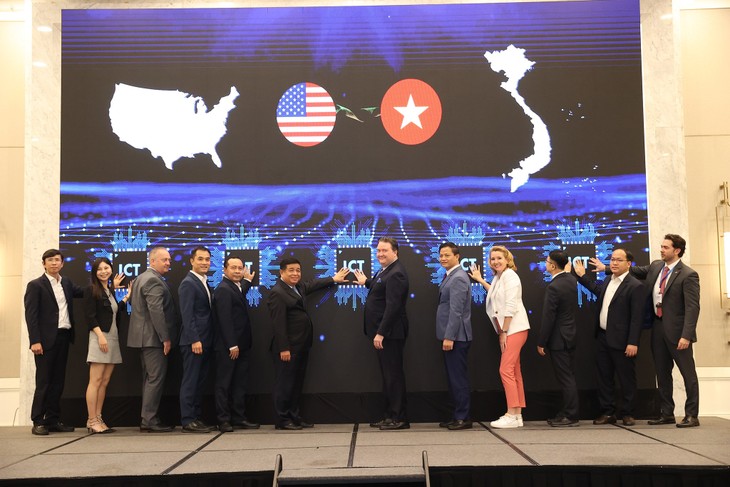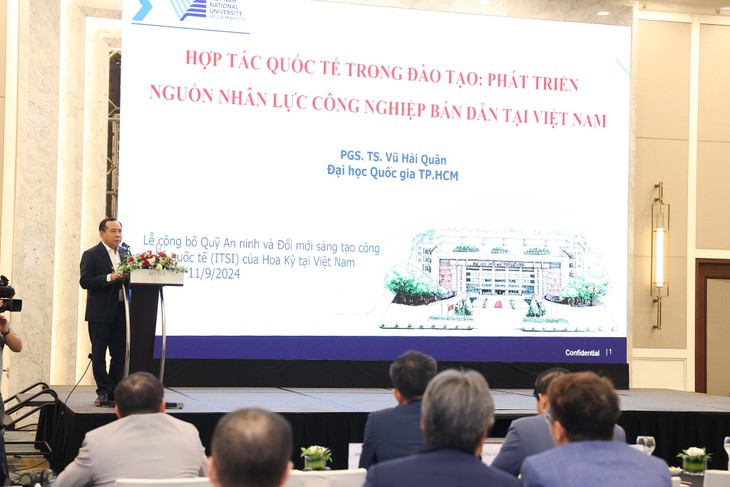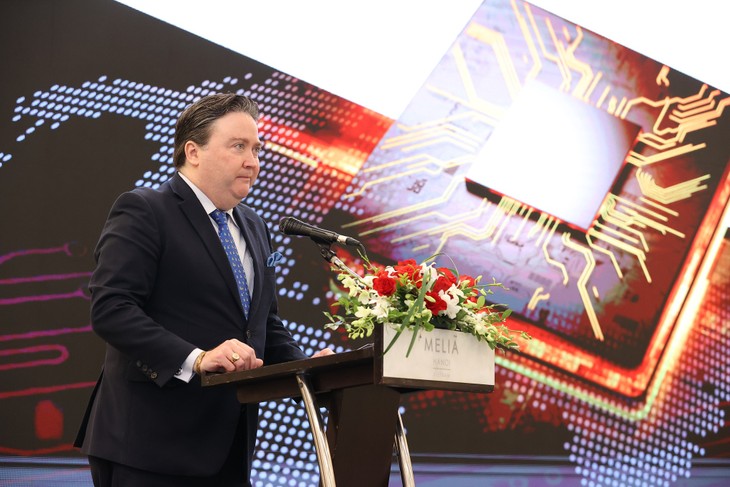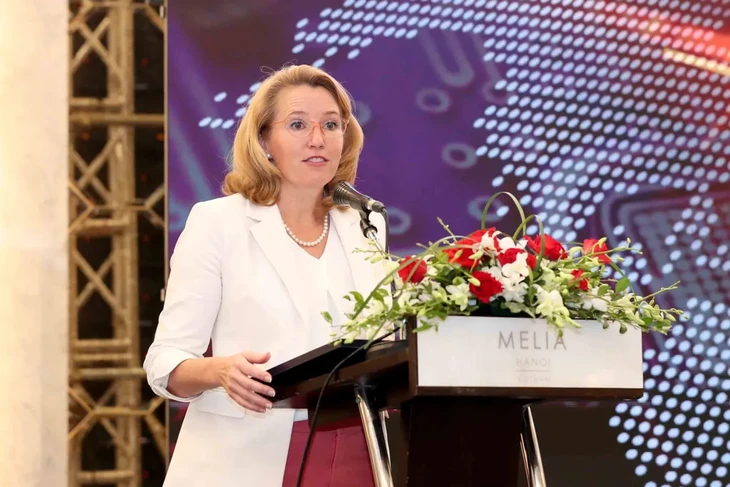(VOVWORLD) - Human resources is the key to the success of Vietnam’s nascent semiconductor industry. Several of the world’s major tech firms have begun shifting their chip manufacturing operations to Vietnam, placing a strain on Vietnam’s capacity to supply the needed manpower. Vietnam is promoting international cooperation in training qualified workers to meet the demand.
 At the launch of International Technology Security & Innovation Fund (Photo: NIC) At the launch of International Technology Security & Innovation Fund (Photo: NIC)
|
The International Technology Security & Innovation (ITSI) Fund, an initiative of the US CHIPS and Science Act, was launched in Hanoi last Wednesday.
This is Vietnam‘s latest effort in collaboration with foreign partners Qorvo, Cadence, Google, Siemens, and Samsung to realize the goal of training 50,000 engineers for the semiconductor industry, including at least 5,000 with expertise in artificial intelligence.
 Associate Professor Dr. Vu Hai Quan (Photo: NIC) Associate Professor Dr. Vu Hai Quan (Photo: NIC) |
Although Vietnam’s semiconductor industry has a great opportunity right now, there are numerous obstacles, says Associate Professor Dr. Vu Hai Quan, Director of Vietnam National University – Ho Chi Minh City.
“The first obstacle is our training program. Although Vietnam has long trained students in semiconductor technology, including microchip design, most of that training was done by the electronics and telecommunications faculty or the computer science faculty. We haven’t had a specialized training program for semiconductors until this year,” said Quan, adding, “The second problem is a shortage of lecturers. Each year we train 200 engineers but the current number of professors, associate professors, and lecturers with PhDs in the field is limited. Expanding our teaching capacity is extremely important and can’t be done overnight, so we need international cooperation to help our universities train qualified lecturers."
Quan mentioned other difficulties, including a lack of laboratories for research and testing and a lack of internship opportunities for semiconductor students. But these difficulties, too, can be addressed through international cooperation.
 US Ambassador to Vietnam Marc Knapper (Photo: NIC) US Ambassador to Vietnam Marc Knapper (Photo: NIC) |
US Ambassador to Vietnam Marc Knapper said these difficulties match the ITSI Fund's goal of expanding semiconductor Assembly, Testing, and Packaging (ATP) capabilities globally to ensure a robust and resilient supply chain.
According to the Ambassador, Vietnam's goal of creating a larger workforce of high-tech workers, computer scientists, and electrical engineers, is very ambitious and, of course, a very important part of this will be the English language. ITSI funding will go to promoting English language training and very technical, very specific areas related to computer science and electrical engineering.
“The decision by the Ministry of Education and Training to make English the second official language of educational institutions, high schools, and colleges will really help to promote young people's education in these high-tech fields as they learn very technical vocabulary and are prepared then to go into graduate school in the United States or work for a company that requires communication in English,” said Knapper, adding, “So, the English language is critical. In addition, we mentioned earlier the importance of ensuring a good regulatory framework that's inviting to foreign high-tech manufacturers and ensuring a reliable source of energy.”
The US Department of State has awarded Arizona State University 13.8 million USD to promote talent development and provide public policy recommendations in eight strategic countries, including Vietnam.
 Virginia Kent, ITSI Senior Coordinator, insists on the importance of collaboration in high-tech fields. (Photo: NIC) Virginia Kent, ITSI Senior Coordinator, insists on the importance of collaboration in high-tech fields. (Photo: NIC) |
Echoing Knapper’s opinions, ITSI Senior Coordinator Virginia Kent affirmed that the Arizona State University program is very focused on developing and upskilling workforce skills.
“We're looking to partner with about 20 educational institutions throughout Vietnam under which hundreds of professors will be receiving training in trainer programs as well as students. And this is an incredibly aggressive opportunity for Vietnamese students to gain very specific hard skills in the semiconductor industry as well as soft skills and English language in the semiconductor industry. We see Vietnam as an incredible area for growth in this industry and we are very excited to be part of this partnership,” Virginia Kent noted.
According to the Ministry of Information and Communications, the workforce demand for the IT and digital industry in Vietnam is 150,000 engineers per year.
Vietnam’s labor force can meet only about 40-50% of this figure, while the semiconductor industry can meet only about 20% of its labor demand.
As part of the effort to expand the labor force to meet the increasing demand of the rapidly developing semiconductor industry, the National Innovation Center (NIC) of the Ministry of Planning and Investment has organized several semiconductor training programs in collaboration with Qorvo, Cadence, Google, Siemens, Samsung, and FPT.
The launch of the International Technology Security and Innovation Fund (ITSI) last Wednesday will also support Vietnam in meeting the demands of developing its semiconductor industry, advancing the country's global integration efforts.